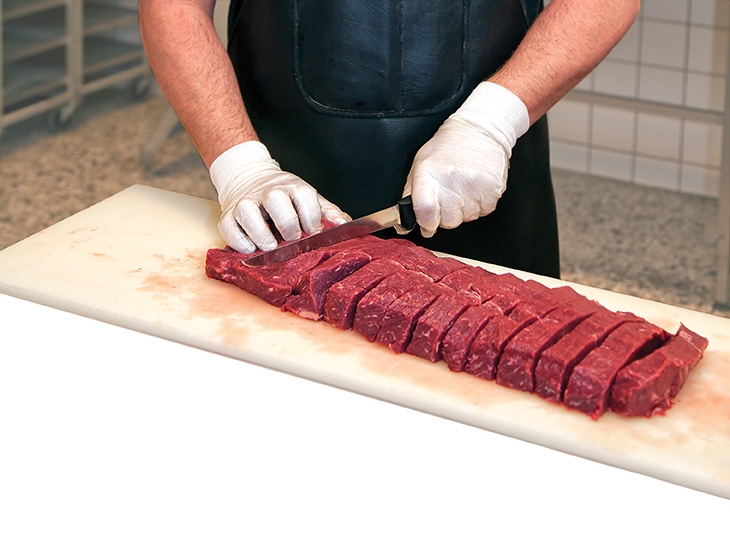September 30, 2020

The Strengthening Local Processing Act was introduced in the House to expand options for local producers and assist smaller facilities as they adapt to the coronavirus pandemic and expand to meet demand.
Reps. Chellie Pingree, D-Maine, and Jeff Fortenberry, R-Nebraska, introduced the legislation Sept. 29.
“There is a broadening concern over corporate concentration in the meatpacking industry. In a previous time, we had more local meat processing. This bill helps stimulate a return to that previous model, creating a robust market in local economies, linking the farm to the family," said Fortenberry, ranking member, House Appropriations Subcommittee on Agriculture, Rural Development, and Food and Drug Administration.
“Maine has almost 3,400 diversified small farms that raise livestock, but our farmers have to book their dates as soon as the hooves hit the ground because the processing availability is so strained,” Pingree said. “Under the Strengthening Local Processing Act, our state would have increased slaughter and processing capacity, allowing us to produce much more meat and chicken right here in Maine.”
Large meat and poultry processing plants across the country have shut down due to COVID-19 outbreaks. The pandemic has underscored the lack of resilience in the meat and poultry processing sectors. As a result, consumers have shown an increased interest in buying local products, including meat and poultry.
Under federal law, in order for a farmer or rancher to sell individual cuts of locally raised meats they must first send their animals to one of a limited number of USDA or state-inspected slaughterhouses. These slaughterhouses are sometimes hundreds of miles away from producers. As a result, many smaller meat and poultry processing plants are booked out for months, and small farms are unable meet new demand due to a lack of processing capacity.
The Strengthening Local Processing Act will:
Increase the federal share of costs for state inspection from 50% to 65%. There are 27 states that operate a state inspection program.
Increase the federal share of costs for state inspection for Cooperative Interstate Shipment (CIS) facilities from 60% to 80%. There are eight states that participate in CIS.
Authorize competitive grants to small and very small establishments, state inspected facilities, custom exempt facilities, or new small-scale slaughter facilities for activities related to COVID-19 response and recovery.
Authorize a new $10 million grant program for colleges and universities to establish or expand meat processing training program, and
Authorize a new $10 million grant program for small and very small establishments or nongovernmental organizations to offset the cost of training new meat processors.
The legislation has drawn much positive response.
“Small plants play a critical role in ensuring farmers and ranchers are able to process their products, especially during the increase in demand for more local and regional meat and poultry during the COVID-19 pandemic. This bill is a strong step towards ensuring scale-appropriate regulations and support for small plants that maintain and pursue federal and state inspection.” – Kelly Nuckolls, Policy Specialist, National Sustainable Agriculture Coalition
“Based on NMPAN’s 12 years of research, education, and providing technical assistance related to the viability of small and mid-scale meat processors, our organization finds that the provisions of the proposed "Strengthening Local Processing Act" are thoughtfully designed and will address persistent challenges that our processor members frequently share with us. We think it gets at some of the core and complex challenges in the sector that many other bills have not addressed. We believe it can make a positive impact.” – Rebecca Thistlethwaite, Director, Niche Meat Processors Assistance Network
“Small plants are the backbone of the processing infrastructure in the bison business. The disruption created by COVID-19 has placed those plants under extreme stress. The provisions in the local processing bill will provide those plants with important resources to help existing plants get through this challenge and will assist new facilities in successful start-up.” – Dave Carter, Executive Director, National Bison Association
“The pandemic confirmed something farmers have known for some time: there is a severe shortage of local and regional meat processing facilities across the country. This not only means that farmers often have to send their livestock hundreds of miles away, but it also makes our food supply vulnerable to disruption. By helping small to mid-sized processors access interstate markets, providing financial and technical assistance to local slaughter facilities, and expanding career training for meat processing, the Strengthening Local Processing Act is an important step towards strengthening local food systems and giving farmers more and more convenient processing options.” – Rob Larew, National Farmers Union President
Source: Office of Rep. Chellie Pingree, which is solely responsible for the information provided and is wholly owned by the source. Informa Business Media and all its subsidiaries are not responsible for any of the content contained in this information asset.
You May Also Like




